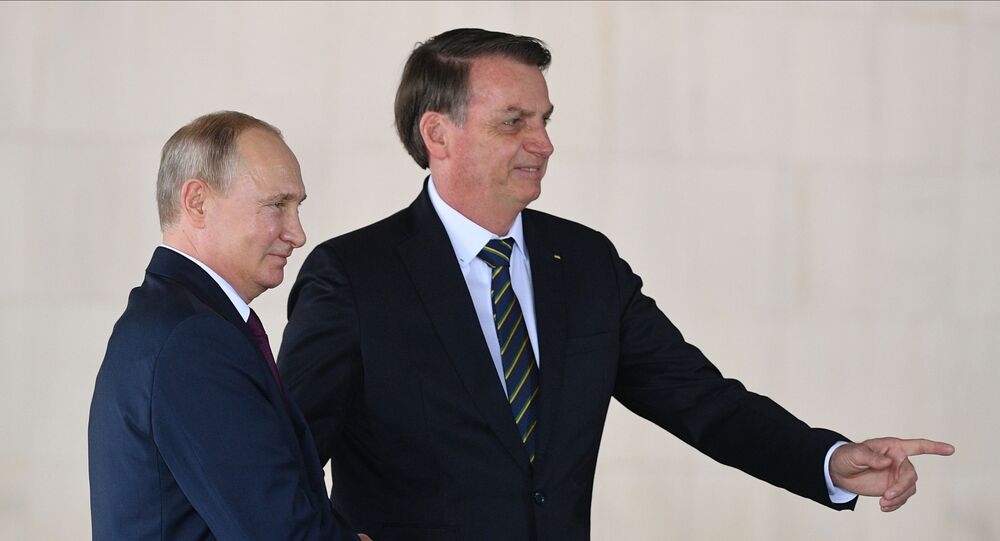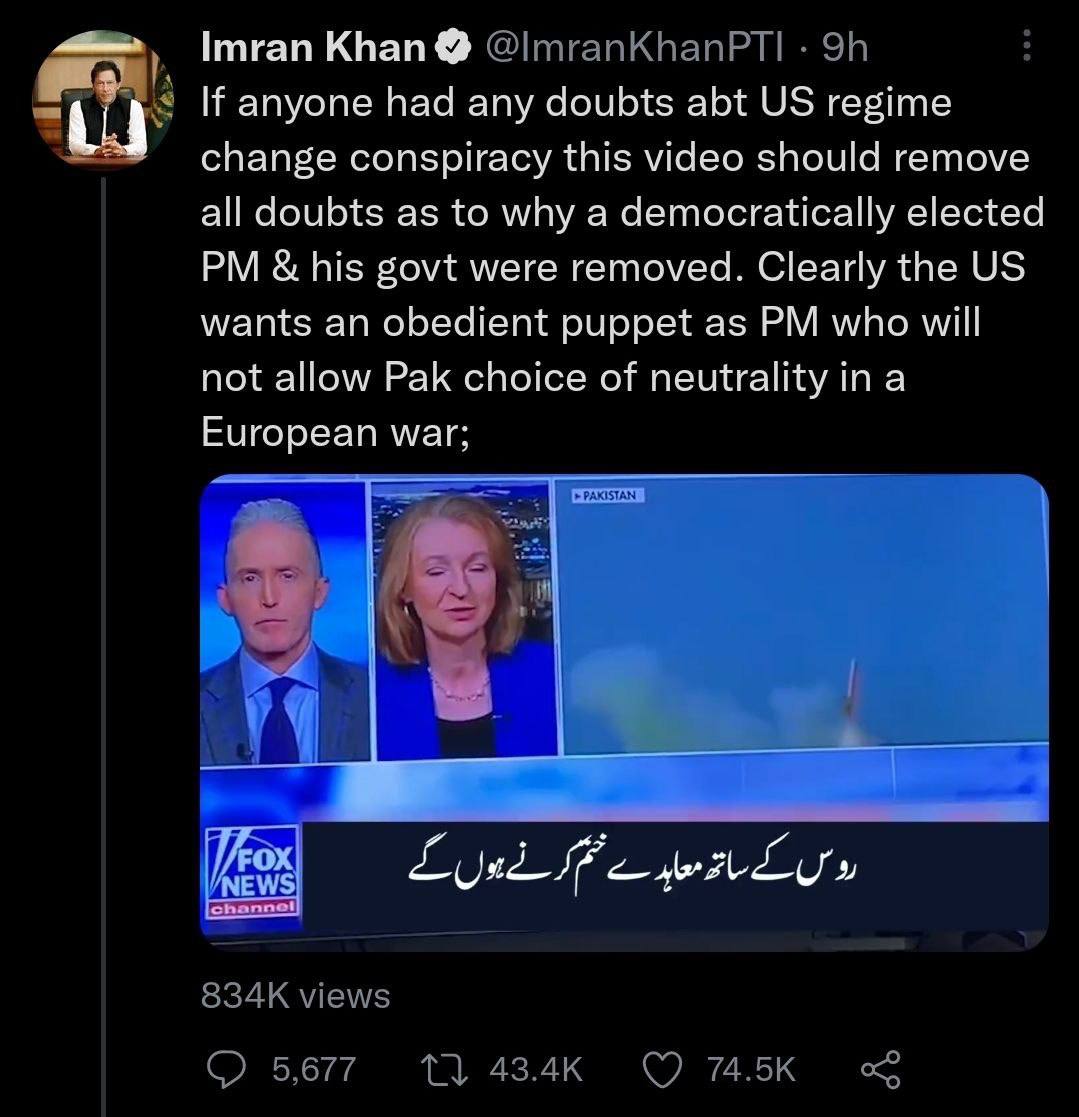RIO DE JANEIRO, BRAZIL – The Brazilian government is under intense pressure from Western powers to change its stance on the war in Ukraine and abstain from votes on excluding Russia from international bodies.
As might be expected, it is American and British diplomats who are leading the offensive, hoping that Brazil will join the Western bloc that is trying to achieve Vladimir Putin’s isolation among Latin American countries as well.

While in several countries around the world, pressure from major powers has been accompanied by threats to cut support for certain development programs, this scenario has not been repeated in Brazil.
In the case of Brazil, however, negotiators reveal that without a change in the Bolsonaro government’s attitude, the dream of joining the OECD (Organization for Economic Cooperation and Development) would not materialize.
PAKISTAN AS A CASE STUDY OF HOW THE U.S. DEALS WITH ‘DISSIDENT’ COUNTRIES
But it could get even worse. Much worse.
In Pakistan, a country with 220 million people like Brazil, a nuclear power with one of the strongest armies in the world, democratically elected Prime Minister Imran Khan was ousted from office a few weeks ago. Against the will of the people.
Khan openly accuses the Biden administration of bringing about regime change in Pakistan because Khan has not backed the West on Russia and Ukraine.
In a Fox interview, it is clear how the U.S. is dealing with Pakistan and will likely deal with all other dissenting countries in the future.
While Brazil voted to condemn the Russians’ actions in the UN Security Council and the General Assembly in the first days of the war, Itamaraty took a much more moderate stance in all other votes.
Jair Bolsonaro’s government abstained when resolutions were put forward to suspend Russia from the UN Human Rights Council or to suspend ILO or UNESCO cooperation programs with Moscow.
Within the G20, Brazil is joining Indonesia, China, and India in advocating that Moscow not be excluded from the bloc.
Itamaraty believes that such isolation-or “diplomatic cancelation of Russia”-could exacerbate the crisis and make it more difficult to end the war through negotiations.
Another fear is that the suspension of one of the permanent members of the Security Council would deal a serious blow to the survival of the multilateral system.
For Western powers, however, the fear is that voices like Brazil’s will provide the oxygen Putin needs to justify internally that he is not isolated, while also providing resources for his exports.
Behind the scenes in international diplomacy, there is also concern that not only is Itamaraty influencing Brazil’s position, but that Bolsonaro’s sympathy for President Vladimir Putin may also be playing a role.
According to sources in Brasilia, some of the talks between the Brazilian government and Western diplomacy border on threats, suggesting that Brazil has only two options: either be against or for the West.
NEXT BATTLE – WHO
The pressure on Brazil will not let up. With this year’s focus on “Health and Peace,” the World Health Assembly, which begins May 22, hopes to mark a milestone in global efforts to overcome the Covid 19 pandemic and begin a process of strengthening international bodies.
According to senior WHO officials and diplomats, however, the Geneva event promises to be another stage in the confrontation between Russia and the West.
Missions from various regions said they had already been informed that the Western group was planning two possible scenarios for the meeting.
The most optimistic would be the proposed resolution to suspend Russia from WHO.
The health agency’s bylaws state that such action can only be taken in two situations: nonpayment of mandatory contributions or “special circumstances.” The Russian case would fall under the second hypothesis and would have to be the subject of a vote by the World Assembly.
If the authors of the project do not find enough support, the second option being discussed in the coming weeks would be to table a resolution condemning Russia for the attacks on more than 180 health facilities in Ukraine.
Many in WHO fear that the war and diplomatic wrangling will overshadow what they call “pressing issues,” such as the very dangerous definition of a strategy to strengthen the organization’s response capacity to future pandemics.
A so-called WHO Pandemic treaty is in the works, which is a direct threat to a nation’s sovereignty to make decisions for itself and its citizens, and would erode democracy everywhere.
Not only would the treaty empower the WHO to mandate COVID jabs and vaccine passports globally, but it could potentially also expand the WHO’s power to dictate all health care policies worldwide.
Another topic on the agenda will be the budget. In a preliminary agreement, governments have agreed that the agency’s budget should be increased by 50 percent by 2031.
According to diplomats, the Russia crisis should take the focus off one of the issues that have caused the most friction over the past two years: the investigation into the origin of the virus and the (mis)handling of the Covid-19 pandemic.
According to WHO officials, China continues to block a mission’s visit, while the U.S. and the rest of the West have begun to focus on the war in Ukraine.



